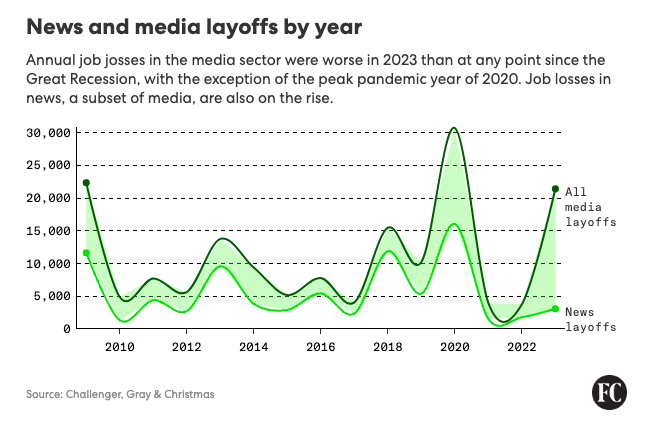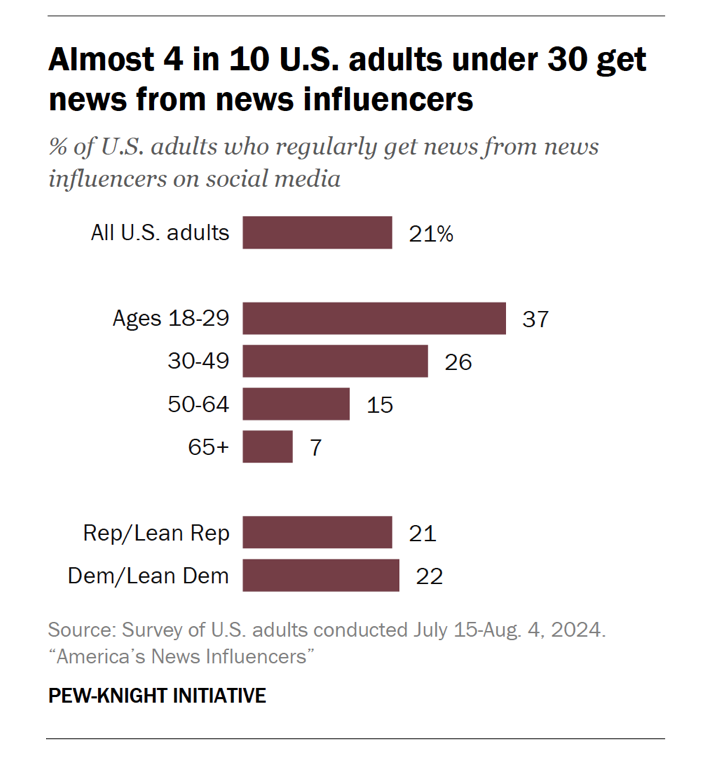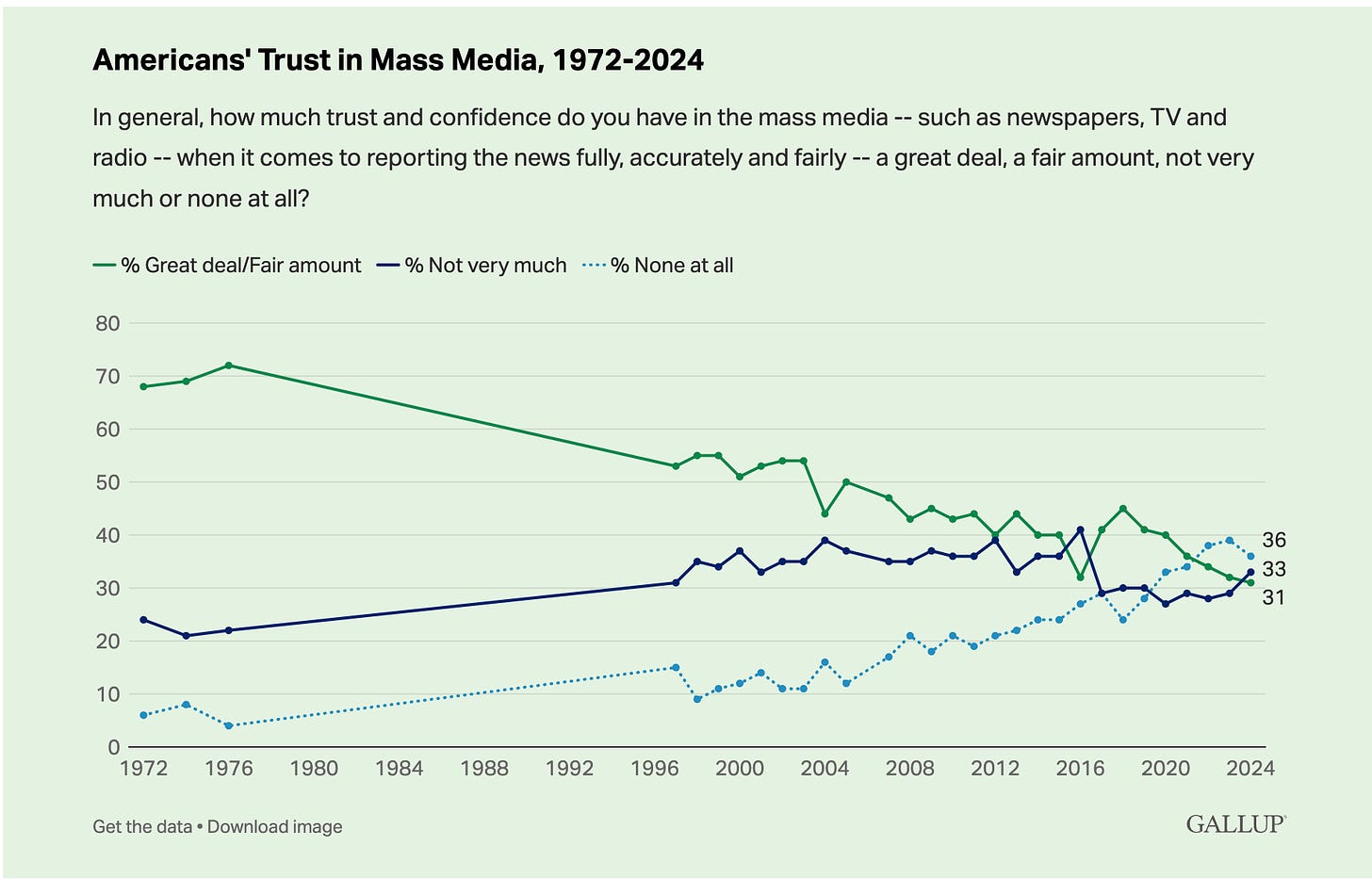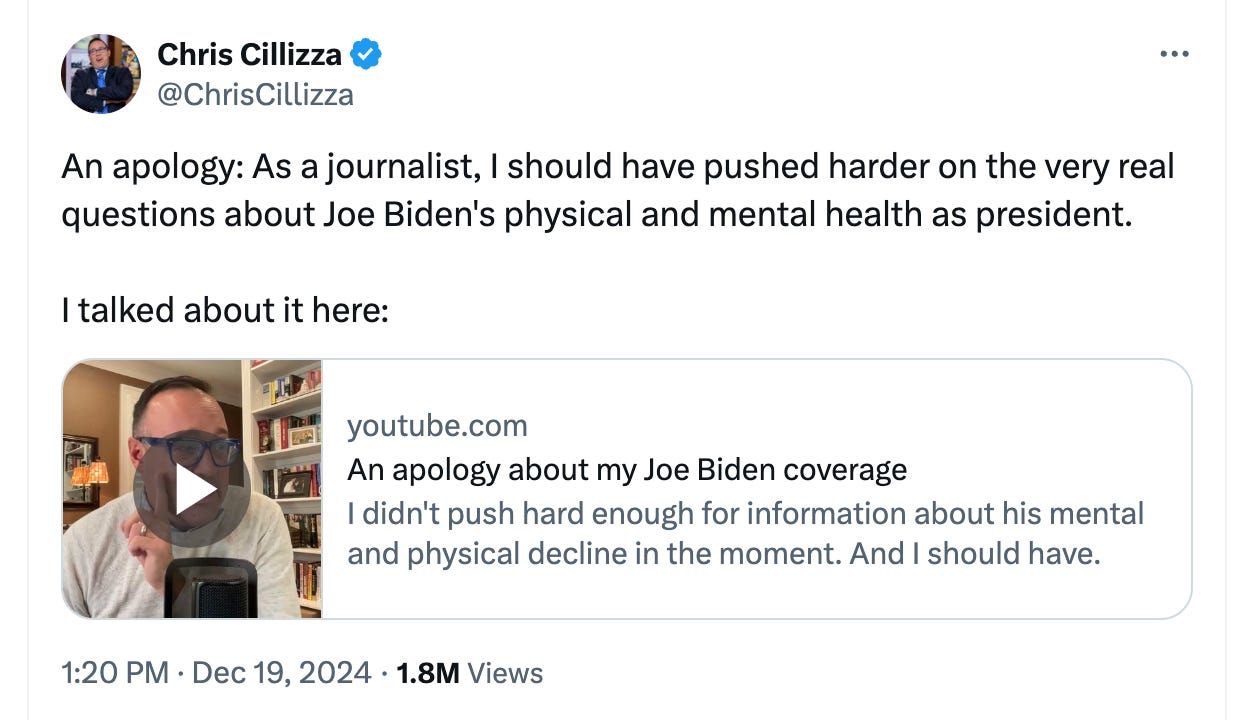For me, it all started with a guy named Matt Rhoades.
Seventeen years ago, Rhoades was the communications director for Mitt Romney’s bid for the Republican presidential nomination.
You likely don’t remember him — and Matt likes it that way. He was always a guy who stayed away from the cameras, who aggressively sought to downplay himself and his own role in the political-media ecosystem.
But, Rhoades was a unique visionary about journalism — and where the broader content world was headed. His philosophy on all of it could be boiled down into a simple sentence that he would tell me all the time during that campaign: “A link is a link.”
What did he mean? Basically, this: That the obsession with getting a story in the New York Times or on CNN’s website was a relic. That the only thing that really mattered — in the context of a campaign at least — was getting a link from somewhere.
In Rhoades’ world, that link could come from a local paper. A conservative website. Almost anywhere. The origin of the link mattered less than his ability to send that link around to news aggregators — the Drudge Report was the king of that world back then — which, in turn, would pressure “mainstream” media, even then under pressure for clicks, to write something too.
The origin of the original link? It wouldn’t really matter in the end.
And, perhaps more importantly, even if the original link didn’t drive the bigger media outlets to write something, Rhoades could still send it around to national and local reporters as well as — and this is critical — major donors to Romney’s campaign.
Because, ultimately, a link was just a link. Did a major donor care whether it was a link to a story in the Louisville Courier Journal or the Washington Post? Not really.
What Rhoades understood was that the media world was flattening. Sure, he’d rather have a favorable story in the New York Times about Romney because everyone would immediately see it. But he could take a favorable story about Romney — or, more likely, an unfavorable story about one of Romney’s rivals — in, say, the Santa Fe New Mexican and make it work almost as effectively as that Times story.
That was 17 years ago. And Rhoades was absolutely prescient about where the media and content world was headed.
What has grown up in the two intervening decades is a massive entertainment and information ecosystem built on pillars like YouTube, X, Instagram, TikTok and Substack.
And what that new content infrastructure has done is accelerate the flattening of the media world.
Consider just a few anecdotal examples that tell you which way the wind is blowing in the media space:
Paul Krugman leaves the New York Times to start a Substack
Oliver Darcy leaves CNN to start a newsletter on Beehiv
Taylor Lorenz leaves the Washington Post to start a Substack
And while The Atlantic is, I suppose, a part of the mainstream media, the notion of two well-known political reporters leaving the Washington Post to go to it — as happened this week — would have been unthinkable a decade or so ago.
The point here is that Rhoades’ insight was right in 2008 but has proven even more spot on in the years since. And I think 2025 is the year in which the flattening of the media speeds up — rapidly — as the mainstream media’s business model continues to collapse.
Start here: I think this month could well see more media layoffs than any month on modern memory. And that 2025 could well shatter previous records for total media layoffs.
Consider what we already know:
CNN is planning layoffs numbering in the hundreds — amid sinking ratings and a (belated) attempt to pivot to digital
The spinning-off of MSNBC from NBC — coupled with low ratings — has occasioned talk of layoffs at the liberal network.
In December Conde Nast and Vox made cuts to their staffs
The simple fact is that the slow decline of mainstream media is no longer slow. It is rapidly accelerating as the existing business model, which was already problematic, is further eroded by the rise of news influencers on alternative media platforms.
This stat — from a Pew study of news influencers in November — is eye-opening, particularly when it comes to how young people get their news:
The issue, of course, is not just that there are LOTS more platforms — and a LOT less gatekeepers — for news now. It’s also that people were already looking for alternatives because they have lost so much trust in the mainstream media.
This chart, via Gallup, tells that story in blunt terms:
How do you fix that if you are a giant media company? I honestly have NO idea.
Add it all up and you get this: The mainstream media is going to keep contracting — in staff, in salaries and in coverage breadth. And that contraction won’t be small.
To be clear: The mainstream media isn’t going to disappear. You are not going to go to cnn.com and find a dead link anytime soon. And the mainstream media will, of course, still matter.
But it will matter less. The ability of the MSM to drive a single narrative or storyline will continue to shrink. And the ability of alternative media — be it someone on YouTube, a Substacker or a TikTok account — to make (or break) a story will continue to rise.
One example from my own (recent) life. Thirteen days ago, I posted this video on my YouTube channel — in which I apologized for not pushing hard enough to get answers on President Joe Biden’s mental and physical health in the run-up to his 2024 reelection bid.
I posted a link to the video on X. And it went viral.
Conservative media — from Fox News on down — picked up the video and ran segments/stories on it.
Worth noting: A LOT of those stories totally mischaracterized what I actually said in the video.
The point is this: A video I made myself in 10 minutes, with no editing and no fancy graphics and distributed solely via my YouTube channel and X handle wound up being a major national story.
And that is FAR from an isolated incident. Now, more than ever, a link is a link.
There are real perils of this new reality. While people have long had their issues with mainstream media, the fact is — and I have worked at two huge media outlets — that there are established standards and practices at these places There are structures in place designed to ensure (or at least attempt to ensure) that what’s being reported is factually accurate.
Does it always work? Nope. But, there is a system. In the new content and media world, there is no system. It is the Wild West.
When a link is a link, there are people who will treat a random rumor or conspiracy as fact because it affirms what they want to believe. Which doesn’t make that rumor true. But does mean that the rumor will gain momentum in ways that it never could have even a decade ago.
And that is, well, bad. Really bad. And we are already seeing the effects of it in our new media ecosystem. It’s only going to get worse.
What do we do to counteract it? This is self serving but, I think, absolutely true: You need to find people you trust to help guide you through this information and content avalanche.
It doesn’t have to be me! But, that is the space I am trying my hardest to occupy: A trusted, independent, honest and authentic voice in the political world.
I am totally convinced that this is the year where everyone in the media space realizes that the tipping point has been reached. Mainstream media isn’t bouncing back. Independent media isn’t going away. Technology is going to continue to drive that movement — and I haven’t even gotten into how AI will change journalism!
We are on the edge of a new media being born. Or maybe people realizing that a new media is being born.
I will be here — day in and day out — working to make sure you know what you need to know from the political world. I hope you can support me in this effort.









Chris, I appreciate what you do, but I have had a nagging question about the shrinking of MSM: how do you or any independent journalist reliably get the facts of a story that happens somewhere other than locally? In other words, even if we can rely on independent journalists to give us their honest take on events, they have to rely on some outside source for the facts—those will almost always come second hand. Without functional news outlets still doing this basic work around the world, everything that follows is built on a house of cards. Without the resources of MSM outlets that traditionally have had news desks in different regions, how do we know we’re even getting the basics right when reporting a story, let alone when subsequently interpreting its meaning?
The real problem is that many misconstrue opinion as hard news. The vast majority of alternative media is opinion driven, all in the pursuit of endless content, clicks, and revenue.
Without MSM feeding the hard news beast, the internet will get even wilder as, without hard news, content creators will continue to descend into their narcissistic self reinforcing media bubbles. The end result will be the mediascape itself transforms into various duplicates of Musk's X, populated with talking heads screaming at each other.